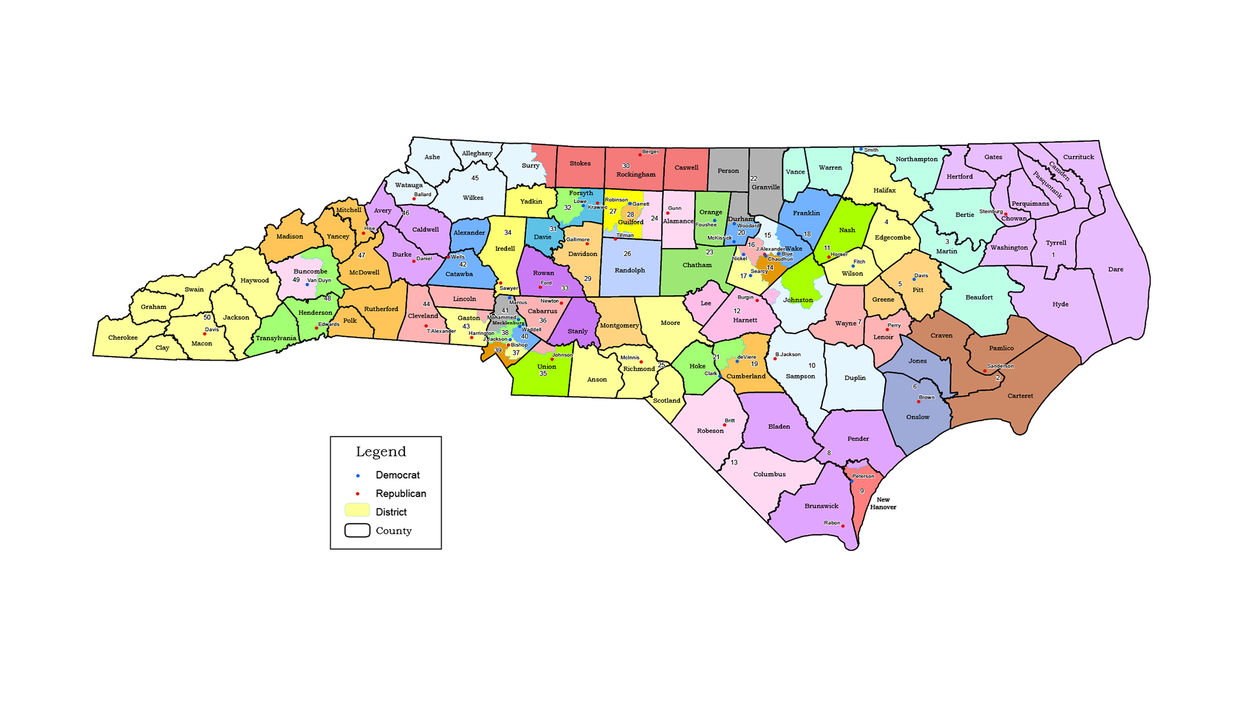North Carolina's new state legislative district lines are on pace to be finished by Wednesday's court-imposed deadline after versions of the maps passed both chambers of the General Assembly.
The Senate's bipartisan, 38-9 vote happened Monday night. The House and Senate are now reviewing each other's maps, potentially making additional tweaks to some boundaries before they are forwarded for final approval to the three state judges in Raleigh who ordered the redistricting this month.
The judges said the current maps were gerrymandered to ensure continued Republican control to the point they violated the state constitution. In reviewing the new lines for similar partisan bias, the judges will be assisted by Stanford University law professor Nathaniel Persily, who was appointed on Friday to referee the process.
The court has the ability to tweak the news lines, and House Democrats don't think districts covering Robeson, Columbus and Pender counties will pass the proverbial sniff test, according to WRAL. The state House maps were passed on Friday, but were more controversial, meaning the Senate maps will be the ones most likely passed on to the court.
These new maps will only be used for one election before they are redrawn using data from the 2020 census.




















